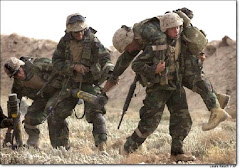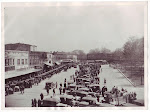LADIES AND GENTLEMAN, THE NUCLEAR INDUSTRY IS NOT YOUR FRIEND IN ANY WAY FORM OR FASHION. THE SECURITY IMPLICATIONS OF THEIR ACTIVITIES AND CONDUCT, IN MY OPINION, ARE A THREAT TO THE SECURITY OF OUR NATION. It appears the nuclear industry and the regulator are carrying forth programs which are designed to untruthfully present risks and safety reports regarding nuclear reactors. The nuclear industry harasses, intimidates and threatens with bodily injury, and the livelihood of those who report safety violations. The Nuclear Regulatory Commission fails to hold accountable nuclear industry corporations and operators. Below I submit to you the evidence which supports my conclusion as reflected by the information below.
This information has numerous links. To grasp the full implications of the failure of our nuclear regulator and the security threat to our nation, please take the time to read, listen and/or watch the videos linked. Without significant change this could be the end result:
>Disinformation-Maskirovka<
Disinformation is intentional for the purpose of misinforming, misleading and providing an avenue to discredit groups and create confusion. It is propaganda, or as the Russians call it, "maskirovka." It is an intentional program of misinformation initiated by the nuclear industry. "Pandora's Promise" is an example of the NEI's propaganda program. Op-Ed by Ralph Cavanaugh on Pandora's Promisehttp://www.cnn.com/2013/11/06/opinion/pandora-nuclear-energy-opinion-cavanagh-cochran/
It should be obvious that the nuclear industry via NEI, Nuclear Energy Institute, is currently spending millions of dollars in a massive public relations campaign. NEI's PR campaigns are directed by this person - J. Scott Peterson, http://www.nei.org/About-NEI/Governance-Leadership/J-Scott-Peterson "He is a member of the board of directors for the Public Affairs Council and NucNet, an international nuclear energy news organization, and serves on the advisory committee for the Clean and Safe Energy Coalition (CASE). He also is a member of the National Press Club."
Nuc Net http://www.nucnet.org/about-nucnet
Nuclear Industry PR in schools http://www.sourcewatch.org/index.php/Nuclear_Industry_PR_in_Schools
>Cyber Attacks<
The nuclear industry is also carrying forth cyber attacks on anti-nuclear groups. Guard your computer equipment that you may carry with you. Do not utilize any public network without a purchased anti-virus program protecting your equipment. Do not assume that Apple Computers or Android phones are protected by internal security software; there have been compromises of Apple Computer and Android Phone Systems.
November cyber attacks in Japan http://www.japantimes.co.jp/news/2013/11/10/national/anti-nuclear-civic-groups-targeted-in-large-scale-cyber-attacks/#.UshVpbCA3rc
BEST-MATRR has suffered 7 cyber attacks in 5 years. The total cost in equipment destruction and loss of research data is in excess of $6,000.00. Attempts to enter computer systems by Federal contractors employed by the NRC is ongoing. Complaints have been filed but have proved to be useless to date.
>Threats, Dirty Tricks and Social Control<
Beware of those bearing gifts in disguise. If you think the nuclear industry or the regulators should be trusted, think again. http://www.humanecologyreview.org/pastissues/her162/mixetal.pdf
"Social control tactics are specific behaviors enacted by social control agents intended to impede activists’ fulfillment of movement tasks. Tactics are aimed at the activist both directly and indirectly. Direct tactics target three aspects of the activist’s life: his/her body, his/her livelihood, and his/her social status. Tactics aimed at the activist’s body intend bodily harm; those aimed at the activist’s livelihood intend income reductions; and tactics aimed at the activist’s social status intend loss of prestige from peers. Indirect social control tactics aim at the activist’s social status, intending loss of prestige from the public by destroying the activist’s credibility and persuading the public to dismiss grievances and tolerate the repression of the movement." (note figure 1 pg 181 of the above report link, PDF pg 10 Figure 1. Schematic of Forms of Repression and Tactics of Social Control)
>Whistleblower Threats and Harassment <
" U.S. Harassment of Nuclear Scientists, Nuclear Plant Workers and Grassroots Anti-Nuclear Activists" http://www.questia.com/library/journal/1G1-82007565/u-s-harassment-of-nuclear-scientists-nuclear-plant
NRC admitted that it has stripped whistleblower protection -
Whistleblower stories - http://youtu.be/Lv_-Gc9PPKs and http://youtu.be/IQEnzugHfu0 Browns Ferry - http://blog.al.com/wire/2013/07/browns_ferry.html Whistleblowers - featuring Dave Lochbaum and Arnie Gunderson ; "...NRC does not fix problems...NRC Inspector General, NRC taking bribes from employer... NRC intentionally botched inspections." http://youtu.be/EHwDS84UN1Y
>NRC, Failure to Regulate<
Three former members of the NRC's Office of the Inspector General charge that the independent watchdog no longer challenges the industry. "...the [NRC] has become reluctant to probe anything that could become controversial or raise difficult questions for the NRC...They don't want to do anything... everything just seems to die."
http://www.scientificamerican.com/article.cfm?id=whistleblowers-say-nuclear-regulatory-commission-losing-bite
To close to industry - http://www.nytimes.com/2011/05/08/business/energy-environment/08nrc.html?pagewanted=all&_r=0
>The Growing Threat - Fuel Pools, Regulator, Safety Culture<
Over packed cooling pools http://www.ucsusa.org/publications/catalyst/su-13-the-growing-threat-of-nuclear-waste.html "One major problem is that today’s U.S. nuclear operators routinely store spent fuel in pools at a much higher density than they were designed to hold. That increases the risk in two ways. First, it increases the chance that the spent fuel will overheat, burn, and release radiation into the environment if cooling is lost due to a terrorist attack or accident. More spent fuel in a pool results in closer spacing between spent fuel bundles, reducing cooling and increasing the chance of fire spreading between the bundles. Second, high density of fuel rods in cooling pools will increase the consequences of an accident if the fuel overheats. More fuel in the pool means it could release more radioactivity." http://www.ucsusa.org/publications/ask/2013/spentfuel.html
Preventing Nuclear Meltdown: Assessing Regulatory Failure in Japan and the United States - Regulatory failure occurs when the regulatory system is deeply flawed – such as when it over- or under-regulates or when the regulatory design is based on “old science”. Regulatory failure also happens when agencies inadequately fulfill their oversight, supervisory and enforcement functions. http://www.brookings.edu/research/opinions/2011/04/01-nuclear-meltdown-kaufmann#
Safety culture problems industry wide, fuel cycle and nuclear facilities:
Independent Oversight Assessment of Nuclear Safety Culture at the Los Alamos National Laboratory Chemistry and Metallurgy Research Replacement Project "Some elements of fear of retaliation were identified in some groups as inhibiting the identification of problems. Negative perceptions around feeling free to challenge management decisions and believing that constructive criticism is not encouraged may be contributing to the behavior." http://www.dnfsb.gov/sites/default/files/Board%20Activities/Letters/2012/ltr_20121212_20916.pdf
The U.S. Department of Energy (DOE) Office of Enforcement and Oversight (Independent Oversight), within the Office of Health, Safety and Security (HSS), conducted an independent assessment of nuclear safety culture1 and management of nuclear safety concerns at the DOE Waste Treatment and Immobilization Plant (WTP).
"...there is a definite unwillingness and uncertainty among employees about the ability to openly challenge management decisions. There are definite perceptions that there is not an environment conducive to raising concerns or where management wants or willingly listens to concerns. Most employees also believe that constructive criticism is not encouraged." http://energy.gov/sites/prod/files/hss/Enforcement%20and%20Oversight/Oversight/docs/reports/semevals/Final_Hanford_WTP-Report_Jan%202012.pdf
"It's evident the NRC is capable of being an effective watchdog," said Dave Lochbaum, director of UCS's Nuclear Safety Project and author of the report. "But too often the agency does not live up to its potential, and we are still finding significant problems at nuclear plants that could trigger a serious accident.Many of the near-misses last year involved problems that were festering for years, if not decades," he added. "That means that the plant owners' testing and inspection regime is broken. Nothing is going to change unless the NRC requires plant owners to fix it." http://www.cnn.com/2013/03/08/us/nrc-nuclear-report/ "NRC's lax oversight "reflects a poor safety culture," including a disconnect between the agency's workforce and its senior management, with managers tending to downplay safety problems and react negatively when workers point them out." http://www.ucsusa.org/nuclear_power/nuclear_power_risk/safety/nrc-and-nuclear-power-safety-annual.html
Safety Culture is not possible without regulatory compliance: http://allthingsnuclear.org/wp-content/uploads/2013/09/20130900-blanch-regulatory-compliance-report-.pdf
One incident in itself does not indicate a regulatory failure, corruption or compromised safety culture. However, when placing together all the pieces of the puzzle the picture becomes clear. There is evidence, as presented, that the U.S. nuclear industry and the regulator, Nuclear Regulatory Commission, have intentionally, for the purpose of financial gain, compromised U.S. citizen health and welfare in violation of Federal Law. This is a historical, long standing problem which has serious implications for the security of the United States. The saga of failed oversight, neglect, threats, harassment and criminal acts continue to this day.















No comments:
Post a Comment